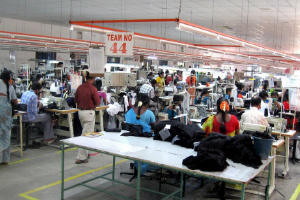
30% textile units do not have urinals
YarnsandFibers News Bureau 2018-03-27 10:32:00 – MumbaiIn textile processing units, where number of female workers are 20 against 680 males, they do not have separate toilets for females.The situation in the powerloom units is worse as only few number of industrial areas have toilets and urinals, while most do not have urinal facilities and workers are forced to defecate in the open.
“A female helper in a processing unit working told us that since past 10 years, the workers defecate in the open as there are only two toilets and no urinals. This unit employ 68 male and 20 female workers. This is a blatant violation of the Factory Act.†As quoted by Jagdish Patel, director of PTRC.
10% units do not have toilet facilities and most units do not have separate toilet facilities for women workers and in hosiery units, there are restrictions on how many times workers can visit toilets in a day according to study.
The survey shows that 48 textile units in different industrial areas across the city included 10 powerloom units, 28 textile processing units, 7 embroidery units and 1 each of hosiery, garment and a composite mill.
3 were female workers among the 50 respondents that filled up the questionnaire
Vadodara-based Peoples Training and Research Centre (PTRC) revealed that urinals don’t exist in 30% textile units including power loom, textile processing, as well as embroidery and garment units according to their study on the labour conditions in Surat’s textile industry
Surat was one of the first few cities in India to have gone open defecation free in 2016
Market Intelligence
Ask for free sample Report

experience
Customer Base
dedicated team
Countries Served Worldwide









